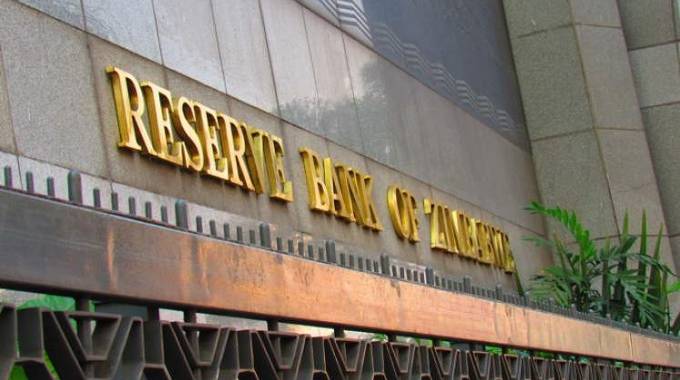Editorial Comment: Market forces guarantee forex rate stability

The remarkable stability seen in the auction exchange rate reached an extreme point this week with a change of one sixteenth of one percent, the Zimbabwe dollar firming five Zimbabwean cents to an exchange rate of $81,4439:US$1, largely because the top bidder lopped 70c off their bid.
Conspiracy theorists, of course, see such tiny moves and the last five consecutive auctions, all the auctions in September, showing the Zimbabwe dollar firming as an indication of meddling and manipulation, despite the combined movement for those five weeks being a total firming of 2,34 percent.
In fact, the Reserve Bank of Zimbabwe has allowed market forces to prevail since the eighth auction on August 14 when the lowest bid finally came within around $5 of the weighted average. In the first seven auctions, the RBZ had signalled that a small scattering of bidders trying to get a huge bargain by bidding way below the bulge of bids around the eventual average were chancing their arm and pushing their luck.
Such bids were rejected by the sophisticated software that the RBZ uses as isolated scattered points. That rejection would have pushed the exchange up, but probably only slightly since very few bidders were taking such a huge gamble.
No such action was needed to curb the scattering of bids above the bulge of the vast majority of bids. The number of businesses willing to pay a lot more than needed for their US dollars was obviously never really high and it is doubtful that anyone actually wants to donate their hard-earned money to the Reserve Bank.
The important point of the system is that no one actually pays the weighted average, the auction rate, for their foreign currency. They pay what they bid. If they bid high the Reserve Bank takes their money.
If they bid low, but still within the bulge of almost all bidders, they may well get a small bargain, paying a few dollars less than the average for their US dollars, but also taking a risk that the software might rule that their bid was a scattered isolated point on the graph and so was rejected.
An overwhelming majority of bidders will almost certainly be within a couple of dollars of the eventual weighted average. So in the present situation where all valid bids, those that meet the RBZ’s rules, are allotted currency because at the moment there is enough available, there will be tendency for those who have to been overbidding to knock a little off their next bid.
But they will not knock much off because anyone bidding on the higher side probably needs their currency urgently, and cannot afford to take a chance they will miss out this week and have to rebid next week.
But the two processes have seen the gap between low and high bids reduce, again a positive feedback to creating stability. The Reserve Bank in its weekly auction statement sends another signal, again one that will encourage some to bid a little high, that some allotments were made pro rata to meet the set conditions over import priority categories.
RBZ has said, from the very beginning of the system, that all bids must be for imports on the import priority list. So people wanting to place a bid to import unnecessary consumer luxuries have their bids rejected before the auction actually starts.
But the priority list is divided into two. In category 1, we have the essentials, the things the productive sectors must have to stay in business and remain in production.
In category 2, we have things that are a little less essential, but are highly desirable to keep the economy growing. RBZ has stated that category 1 imports must make up at least 70 percent of all allotments on the main auction and 80 percent on the SME auction.
So if you are a category 2 importer you might well feel that adding a couple of dollars to your bid will ensure that you get a full allotment, just as if you are a category 1 importer with modest stocks of raw materials in your warehouse you can take a small chance and knock 50c or so off your bid. Why pay more than your competitor?
These sort of calculations tend to explain some of the reasons why the lowest bid, after rising until the middle of September, then stabilised and why the top bid has crept down slightly. The net effect was to lower the weighted average slightly.
The other reason is what must be an improvement in the supply of foreign currency. The five September auctions saw US$112,54 million allotted, with the four highest weekly totals in all 15 auctions so far in that month.
That compares to US$67 million in the four August auctions.
In some ways Covid-19 and the dreadful inflation of the first six months of this year has been kind to the Reserve Bank. Imports of consumer goods have fallen, as spending power has fallen, while the prices of our exports have either been steady or, in the case of gold, have rocketed upwards.
So the RBZ has more money to put on auction, and demand has fallen slightly. The other reason for the market forces producing stability arises from the successful efforts of the Government to live within its means, which has resulted in a stable money supply of Zimbabwe dollars.
The biggest problem now facing most productive importers is not a shortage of foreign currency, it is finding enough Zimbabwe dollars in your bank accounts to buy that currency.
Those US$112,5 million allotted in September cost importers around $9,2 billion, close on 20 percent of all the Zimbabwe dollars in existence. That in turn created a very big hole in the working capital of the industrial sectors. It will eventually be replaced when the imports are converted to Zimbabwean products and sold, but not the day after the auction.
The other control over bids, coupled with the market forces of stable money supply and the adequate export earnings, is the total removal of speculative forces from the auctions.
To bid you have to have a bill to pay, an invoice for an acceptable priority import, and if you have earned some foreign currency, you have to commit that first before you bid for the balance.
And when the RBZ pays your auction dollars into your account you cannot keep them; your bank sends them to your supplier as it flows in and all you see in your nostro account is figures showing the money coming in and then going straight out.
You can still stock up on raw materials of course, but that chews up working capital. So the stable rates, with the tiny September firming, is easy to explain and simply follows from four market forces: the Government lives off taxes, not the printing presses; our exporters are keen to become rich; speculators are kept out of the system and importers, rather naturally, are setting their bids at levels that ensure they get their currency, but without paying more than they need.
The Reserve Bank cannot manipulate, and does not need to. What it is doing is ensuring that everyone follows the rules and then letting market forces produce the results.








Comments